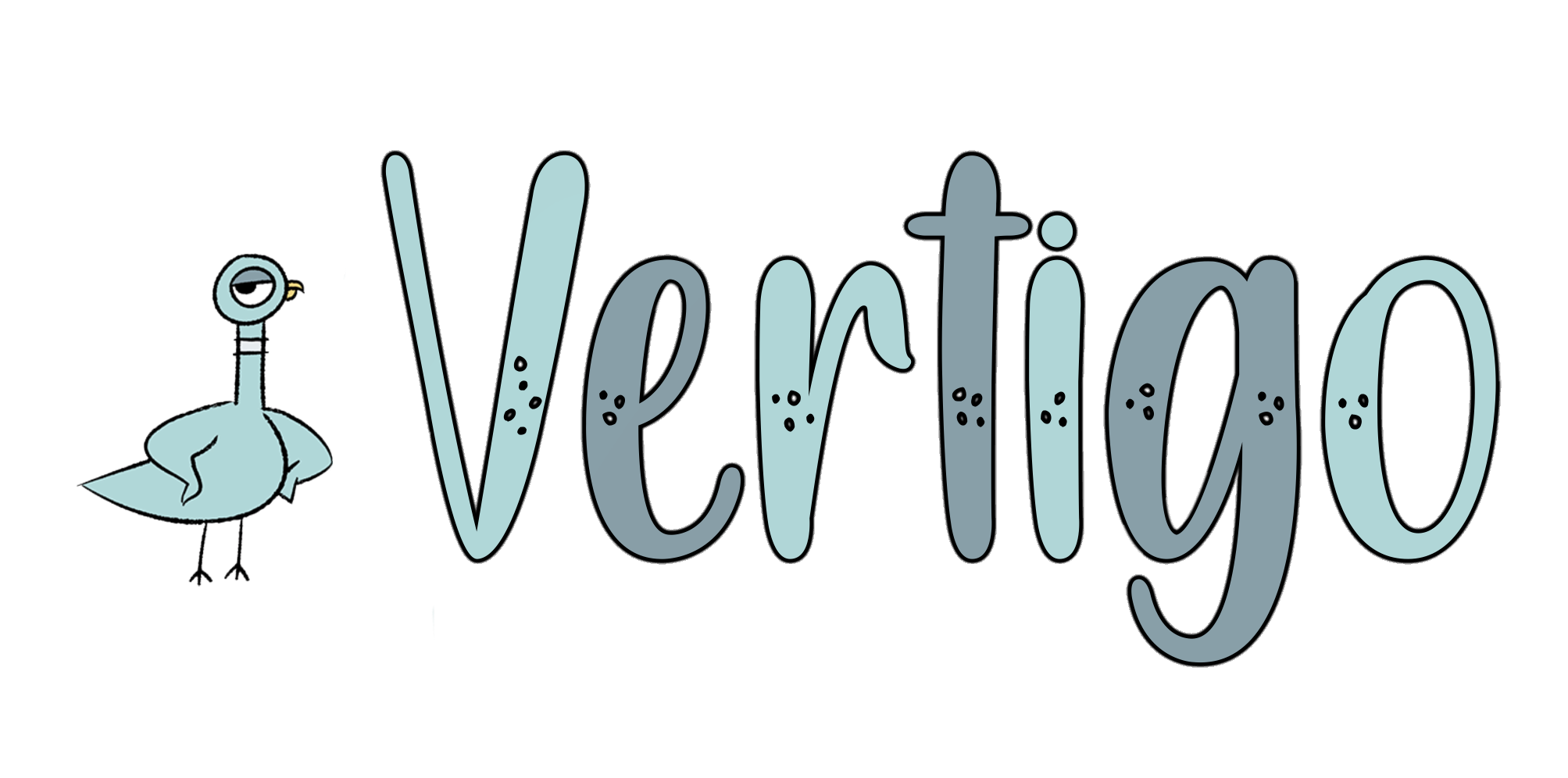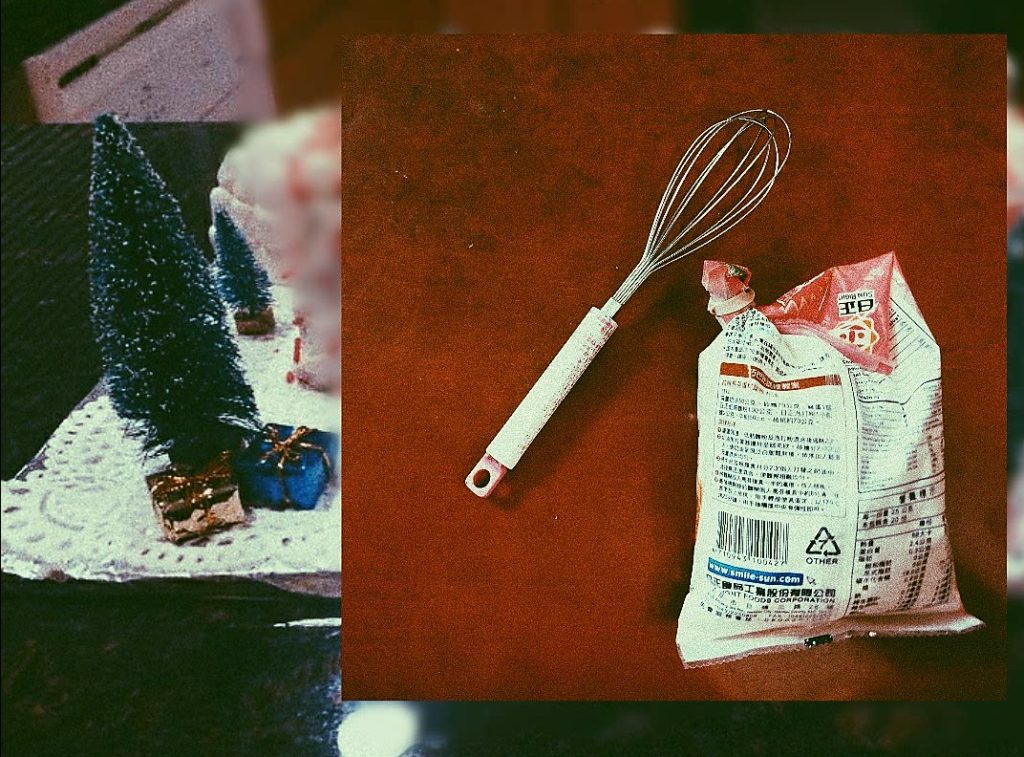by Sherry Huang
Art by Kristie Wu
Issue: Paracosm (Winter 2017)
Rows of pies sat on the edge of the sidewalk like a line of ants, baking. Their crusts were a swirl of molasses and honey, dirt and sand, packed together. Their filling was a deep chocolate, chunks of granite rocks sprinkled across adding crunches of flavor. Toffee was the crackling dried grass that looked as if it had soaked up rays of sunshine to obtain their golden color. There was a flurry dollop of cream placed on top of each one. A dandelion head. The sun, the great oven of September, baked them slowly. When the crusts turned the same golden-brown as the leaves on the ground, Marie knew they were ready.
This particular day the entire world seemed to be a garden of reds and oranges and browns. The colors of fall blended together and came apart, focused and unfocused. Marie set a checkered cloth on top of the blanket of leaves. She found a pail next to some abandoned tomato plants, and filled it with rainwater from an old puddle. Then, she ran over to a patch of still-green winterberries growing under a hole in the fence. She plucked a few, then squeezed it’s juices into the pail where it splashed into the rainwater and mixed its light fragrance around. Winterberry tea.
Marie set her mud pies and her tea onto the checkered cloth. She breathed in and closed her eyes, smiled. Leaves swirled! Everything was sharper, cleaner, every scent seemed to have exploded tenfold. Marie could smell the clearness of the air and the heavy, rich scent of soil. She smelled the sweetness of sun-baked mud and steeped rainwater. She smelled winterberries bursting with their tangy, sweet scent as they crushed between her fingers. And lastly, for the dandelion head sitting on top of each pie… she could almost taste it. On the tip of her tongue, it’s light sweetness, the lightest cream that nature could offer… the perfect topping to a pie.
Marie opened her eyes. She gazed proudly at her assembled picnic. Nothing was real, but everything was. The pies were mud and sand, but they were also the richest chocolate from Belgium, smooth and dark, with crusts that crumbled and melted in mouths. The tea was just berries and water, but it was also a fizzling raspberry cider.
“One day, I’m going to bake a real chocolate pie… and real cider… I’m going to be the best baker there is…” she murmured.
She sat and gazed at the pies she had made from the earth, wondering.
⁂
But mud pies hardened and crumbled down to become dirt and sand. Whipped-cream flowers wilted and shriveled up to dust. Leaves dried and crumbled, water returned back to the clouds it came from. Time took innocence and childhood and the warmth of the September sun with each tick forwards, and Marie had learned that all too well.
Now, a row of instruments lined the countertop. They were a courtesy of Mrs. Clausen, a world-renowned baker, and also Marie’s mother. Mrs. Clausen was as sour as her desserts were sweet. She also happened to be recruiting for her bakery downtown, but—
“Don’t expect me to treat you any different just because you can call me mother.” Mrs. Clausen had told Marie when she put in the application form.
Her hands trembled as she picked up a whisk. She was going to make a chocolate mousse pie today. It was tricky to nail but if she got it right, it would land her a job in her mother’s bakery.
She cracked four eggs a bowl, then took the egg yolks out and started to whisk them, her heart beating the same speed as her hands whisked, slower then faster, slower then faster. Mrs. Clausen was scrutinizing her so carefully, noting every flick of her wrist, noting the angle of the bowl, the consistency of the yolks. Marie whisked faster. She added the sugar, and then she heard her mother make the tiniest of sighs, the smallest disapproving shake of her head. Her heart tumbled down the stairs of her ribcage all the way to her shoes. She had added too much sugar. It was ruined now! Everything had to be perfect, nothing could be too much or too less. No, there was still the cream. Marie steadied her breathing. The cream and the chocolate.
She stirred in heavy cream into the whisked egg yolks, poured them into a pot on the stove. She put in pieces of dark chocolate; each piece turning the mixture darker, like the color of freshly turned soil after a rainy day. The color brought time rushing back for an instant, and with a pang Marie thought of mud pies and winterberry tea and picnics under a fall-woven canopy. How wonderful baking had been back then! She didn’t need to worry if cream would thicken or if cakes would burn in the oven. If only baking could be as carefree and light as the whipped-cream dandelion’s all those years ago…
But it didn’t matter that baking was fun back then, Marie thought bitterly. It was all pretend. None of it was real, not the chocolate nor the cider nor the cream. This was the reality of baking, her mother’s constant cycle of expectation and disappointment.
“Done yet?” Mrs. Clausen’s voice chased memories of mud and dandelions out of Marie’s mind.
“Yes, almost, I just need—”
“Yes or no?”
“No, mother, but I just need to set the mousse.”
Her mother nodded. “First lesson when working in my kitchen—answer any question swiftly and directly. No need for flowery words.”
Marie bit back a sigh and nodded wearily instead.
Ten minutes later, the mousse had set and chilled. Marie spooned it into the crust. She put a dollop of whipped cream on top from a batch she had made earlier. Then, carefully, carefully, she took it over to her mother. Mrs. Clausen cut out a slice and put a forkful into her mouth. Marie fixed her gaze on the kitchen floor and uttered a silent plea.
Her mother chewed then contemplated, contemplated then spoke: “It’s very sweet, as you’re probably aware, but the dark chocolate you used balances it a bit. That was a smart choice. The flavor of the mousse is nice too, it tastes dark, somber.”
Marie lifted her head a bit, but her mother had not finished talking.
“However, that’s about the only good thing I can say.” Mrs. Clausen’s face twisted into the hard disappointment that Marie was so used to. “The crust isn’t laid down consistently. You see this slice? There’s too much crust in the middle area. Although the taste is fine, the texture of the mousse is too grainy. The eggs are whisked well, but the cream hasn’t been folded into the mixture well enough. As for the whipped cream on top… did you make it yourself?”
“Yes…”
“It’s heavy, too heavy. Whipped cream is supposed to be airy, delicate, and you’ve made it the same consistency as buttercream.”
Marie felt herself sinking, her heart turning leaden. How did she mess it up this bad? But her mother was still speaking.
“What’s more, it’s empty. There’s nothing in it. When I taste it, I don’t feel anything. I don’t feel you in this pie. There’s a boy I accepted into my bakery—he’s only 15—everything he bakes, you can feel it. He baked 4th of July blueberry-raspberry tarts. Bim! Bam! Pop! When I ate them, I saw fireworks exploding over me. I felt the ecstasy of them, I tasted his happiness and I tasted the excitement of fireworks. He turned blueberries into fireworks; he turned his raspberries into glowsticks and firecrackers. When I ate his tart, I didn’t just taste Fourth of July—I was in Fourth of July. He had packed Fourth of July and placed it into his tart. That kind of baking is radical, innovative. It inspires people. This pie? You took some ingredients and you put them together, and in the end it’s a chocolate pie but not anything else. It’s not happiness, or Fourth of July, or home or dreams. It’s just a pie. I’ll eat it, and maybe it’ll taste good, but afterwards I’ll forget about it. That kind of baking doesn’t inspire.”
Marie was staring hard at the pattern on the kitchen floor. She felt so small, smaller than an ant next to a tree, smaller than a single grain of pollen drifting from a flower. She felt something hot behind her eyes, and something lodged in her throat, and she felt a dull ache in her chest. Her heart was beating with a slow, painful beat, dragging her on through this moment. She felt that she was supposed to say something, but shame and anguish had sealed her mouth shut. Her mother’s disappointment surrounded her in silence. Thirty seconds passed. Then a minute. Mrs. Clausen got up and walked out of the kitchen. Marie lifted her eyes and looked at the chocolate pie, a hollow feeling inside of her. Had she thought that nothing was real back when chocolate pies were made of mud and dandelions? No, she was wrong. Everything was real before. Nothing was real now.

